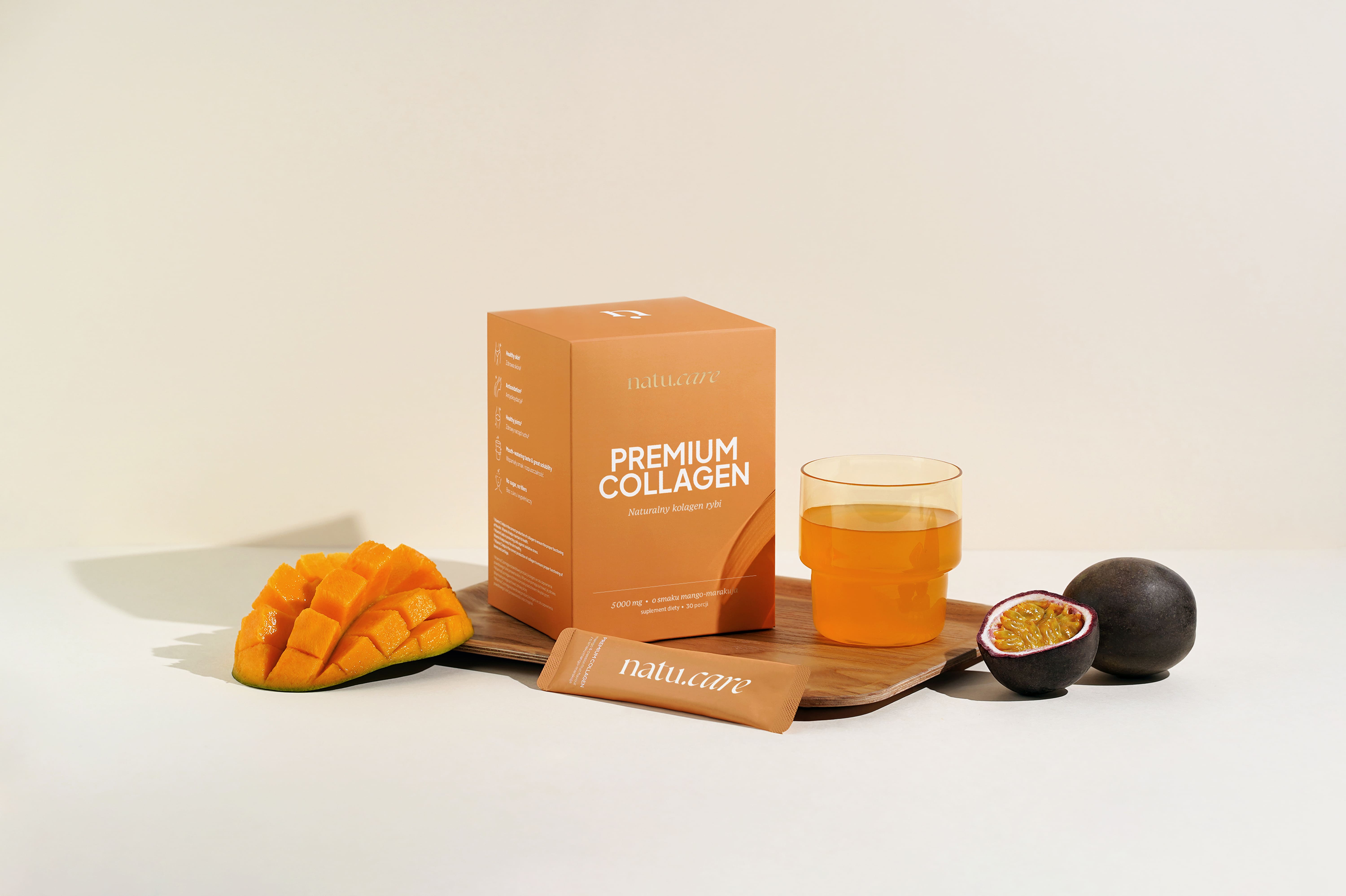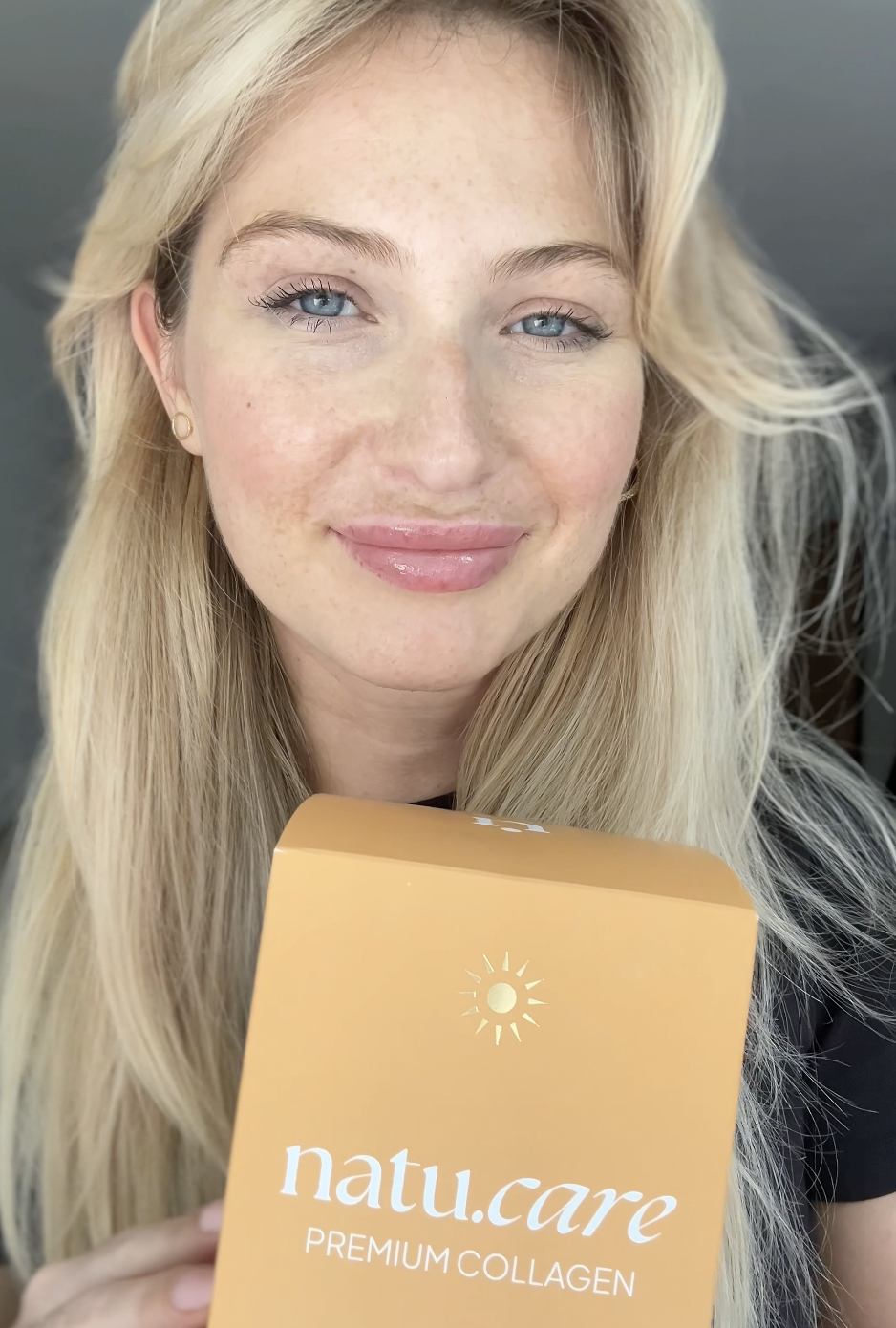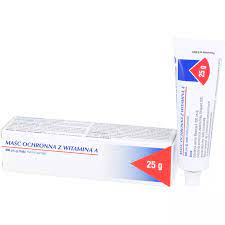Vitamin A - properties, effects, occurrence, deficiency symptoms
Vitamin A supports the immune system, prevents cancer and has a positive effect on vision.


Learn more about our editorial process
.

Learn more about our editorial process
.

Learn more about our editorial process
.

Learn more about our editorial process
.
Why you can trust us
Articles on Natu.Care are written based on scientific research, data from government websites and other reliable sources. The texts are written in cooperation with doctors, nutritionists and other health and beauty experts. Articles are reviewed before publication and during significant updates.
.Learn more about our editorial process
.Information about advertisements
Content on Natu.Care may contain links to products from the sale of which we may receive a commission. When creating content, we adhere to high editorial standards and take care to be objective about the products discussed. The presence of affiliate links is not dictated by our partners, and we select the products we review ourselves completely independently.
.Learn more about our terms and Conditions
.Were you too assured as a child that eating carrots would allow you to see in the dark? Of course, this is a myth, but there is a grain of truth in it. Carrots do not lack vitamin A, which is essential for eye health. Thanks to it, our eyesight is able to adapt much more quickly to poor conditions.
How else does vitamin A work? In which products does it occur? What is the risk of its deficiency? Find the answers to these and other questions in this article.
.
Description of contents:
.- What is vitamin A? .
- Properties of vitamin A .
- In which products is vitamin A found?
- Vitamin A deficiency .
- Vitamin A excess .
- Vitamin A supplementation .
- Does vitamin A affect pregnancy .
- Interactions of vitamin A with medications
- Summary

Sprawdź, za co pokochały go tysiące klientek Kolagen Premium 5000 mg, mango-marakuja
Natu.Care Kolagen Premium 5000 mg, mango-marakuja
Natu.Care Kolagen Premium dla zdrowia stawów, skóry, paznokci i włosów. Najlepsza przyswajalność. Optymalna dawka 5 000 lub 10 000 mg. Przebadany przez niezależne laboratorium.
Zobacz więcej
Wybrałam kolagen Natu.Care, ponieważ miał super opinie – a to było dla mnie bardzo ważne! Odkąd go stosuję, moja skóra znacznie się poprawiła i jest nawilżona, a na głowie pojawiły się nowe "baby hair".@Kasia S.
See also:
- Vitamin A ointment [for what and effects + ranking] .
- Vitamin A plus E [ranking + pharmacist's opinion] .
- Vitamin D3 [which is the best, for adults + for children] .
- Vitamin D3 [action + dosage and supplementation] .
- Vitamin D3 drops [benefits + use] .
- Vitamin D [dosage] .
- Vitamin D overdose [expert opinion] .
- What is vitamin D? [top sources] .
- Vitamin D deficiency [symptoms] .
- Vitamin D3K2 [whether you need to combine + expert opinion]
- Vitamin E [properties + effects and occurrence] .
- Vitamin K2 [properties + occurrence and contraindications]
- Vitamin K [where it occurs + what it helps] .
- ADEK vitamins .
What is vitamin A?
.
Vitamin A is a vitamin that is fat-solubleand. Our body does not produce it - it needs to be supplied through the diet. Many people think of vitamin A as a single nutrient. In reality, it is made up of several compounds.
Each year, novel supplements become more and more popular. In contrast, the basic, most important vitamins are often forgotten. A very good example of this is vitamin A - essential for the proper functioning of the body. It is characterised by its antioxidant effect. Vitamin A is also responsible for the development of reproductive cells. Let's not forget about it - it is very important and its deficiency leads to many diseases..
 .
.
Magdalena Ciura Pharmacy technician
.Today we are looking at vitamin A and its properties. However, it is very often found in dietary supplements with other fat-soluble vitamins. Are you interested in vitamin D, E or K? Click on the letter corresponding to a vitamin and you will be taken to its little world!
What does vitamin A consist of?
.
Vitamin A is a group of chemical compounds: retinol and its derivatives and some carotenoids otherwise known as provitamin Aand. Retinol is the most basic and desirable form of vitamin A . It is found primarily in animal products.
On the other hand, vitamin A extracted from plant products is in the form of so-called beta-carotene which belongs to the carotenoid group.
.
The basic form of vitamin A is retinol, which must be supplied to the body with food. Hence another name for vitamin A - retinol. These names can be used interchangeably..
 .
.
Magdalena Ciura Pharmacy technician
.Properties of vitamin A
.
Vitamin A is essential for the health of our body. It regulates many processes, and its beneficial properties encourage a balanced diet and sensible supplementation.
Antioxidant activity
.
The carotenoids that make up vitamin A protect our body from free radicals. Their presence in the body causes oxidative stressand. In the long term, it can lead to diabetes, cardiovascular disease, cognitive decline and even cancer .
Promoting eye health
.
Vitamin A has a positive effect on eye health and is essential for vision. Consuming it together with your diet counteracts eye diseases. We are talking primarily about macular degeneration (AMD).
Research suggests that people with high levels of vitamin A in their bodies had a 25 per cent lower risk of developing AMDand.
Cancer prevention
.
Fruits and vegetables rich in carotenoids counteract certain cancers. This was confirmed by a study of 10,000 people. People with higher levels of vitamin A had a lower risk of lung cancer by around 50 per centand. Furthermore, preliminary research suggests that retinol prevents bladder, breast and ovarian cancersand.
Immune enhancement
.
Vitamin A (B-carotene to be precise) affects the health of our immune systemand. Its effects extend to the skin and mucous membranes in the eyes, intestines, lungs and also the genital organs. Vitamin A deficiency weakens the function of the immune system .
In countries where infections such as malaria and measles are common, correcting vitamin A deficiency in the youngest has reduced the number of deathsand.
.
The famous vitamin C also has an impact on immunity. Would you like to learn more about it? Take a look at my text about vitamin C!
.
Acne prevention
.
Acne is a chronic skin condition. It manifests itself by painful patches occurring most commonly on the face, chest and back. Research suggests that a deficiency of vitamin A increases the risk of developing acneand. Furthermore, some acne medications are formulated with vitamin A . These are prescription remedies that can only be taken under the guidance of a specialist.
Want to improve the appearance of your skin? Youth protein will certainly help you with this. Take a look at my text about collagen!
Fertility support
.
Vitamin A is essential for maintaining the health of the male and female reproductive systems. A preliminary animal study has shown that its deficiency inhibits sperm development, leading to infertilityand. In turn, among females, a lack of vitamin A reduces egg qualityand.
How else does vitamin A work?
.
- .
- Improves skinand. .
- Prevents lung disease in newborns . .
- Reduces the risk of complications from measles . .
- Influences dental health . .
- Provides pigments in the retina . .
Vitamin A gives elasticity to the skin, reduces skin discolouration and prevents psoriasis. It improves wound healing and affects the mucous membranes in the digestive tract. Vitamin A also supports eye health and the immune system..
 .
.
Magdalena Ciura Pharmacy technician
Product description
Protective ointment with vitamin A is a shielding medicine used during regeneration of the epidermisóskin, soothingóskin inflammation. The ointment has a protective effect on the skin against atmospheric conditions.
.Pros and cons
Protective ointment with vitamin A is a shielding medicine used during regeneration of the epidermisóskin, soothingóskin inflammation. The ointment has a protective effect on the skin against atmospheric conditions.
.Additional information
Protective ointment with vitamin A is a shielding medicine used during regeneration of the epidermisóskin, soothingóskin inflammation. The ointment has a protective effect on the skin against atmospheric conditions.
.Expert opinion
Retimax 1500, protective ointment with vitamin A, 30 g
Product description
Protective ointment with vitamin A, RETIMAX 1500, is intended for the care of irritated and dehydrated skinóry. Thanks to its properties, it has a regenerative effect on the stratum corneum. It has a soothing effect on rough, cracked skin and is helpful in the care of cracked corners of the mouth. It is an ideal preparation for use after sunbathing, use of a solarium, chemical skin removal and laser treatments. The ointment nourishes the skin with vitamin A, which is an essential regulator of cell renewal. The cosmetic protects the skinóhand and leaves it feeling naturally soft and smooth. The product is fragrance-free.
.Pros and cons
Protective ointment with vitamin A, RETIMAX 1500, is intended for the care of irritated and dehydrated skinóry. Thanks to its properties, it has a regenerative effect on the stratum corneum. It has a soothing effect on rough, cracked skin and is helpful in the care of cracked corners of the mouth. It is an ideal preparation for use after sunbathing, use of a solarium, chemical skin removal and laser treatments. The ointment nourishes the skin with vitamin A, which is an essential regulator of cell renewal. The cosmetic protects the skinóhand and leaves it feeling naturally soft and smooth. The product is fragrance-free.
.Additional information
Protective ointment with vitamin A, RETIMAX 1500, is intended for the care of irritated and dehydrated skinóry. Thanks to its properties, it has a regenerative effect on the stratum corneum. It has a soothing effect on rough, cracked skin and is helpful in the care of cracked corners of the mouth. It is an ideal preparation for use after sunbathing, use of a solarium, chemical skin removal and laser treatments. The ointment nourishes the skin with vitamin A, which is an essential regulator of cell renewal. The cosmetic protects the skinóhand and leaves it feeling naturally soft and smooth. The product is fragrance-free.
.Expert opinion
In which products is vitamin A found?
.

Rise&Shine: Collagen (5000 mg) in Mango-Maracuja flavour
Rise&Shine is collagen (5000 mg) in Mango-Maracuja flavour. Proven formulation, great bioavailability and refreshing taste.

Glow Stories - for healthy skin, hair and nails
.Product with high-quality folic acid Quatrefolic®, bamboo shoot extract and ingredients that have a positive effect on skin, hair and nails.
Vitamin A can be found in animal and plant productsand. Which ones contain the most of it?"
.
|
Product . |
Vitamin A content per 100 grams . |
|
Cod liver oil . |
30 000 mcg . |
|
Beef liver |
9440 mcg . |
|
Liver sausage |
8310 mcg . |
|
Lamb liver . |
7390 mcg |
|
Sweet potato |
1043 mcg . |
|
Goose liver pâté |
1000 mcg . |
|
Carrot . |
835 mcg . |
|
Bluefin tuna |
757 mcg . |
|
Kale |
575 mcg . |
|
Winter pumpkin |
532 mcg . |
.
Vitamin A deficiency: symptoms
.
Vitamin A deficiency is a common occurrence in developing countries. It is most often caused by a lack of adequate diet. It can also be the result of:
- hepatic and pancreatic disordersand, .
- chronic diarrhoea ,
- diseases of the digestive system, .
- deficiency of zinc or iron, .
- unbalanced diet (low in fat), .
- disorders such as cystic fibrosis or coeliac diseaseand.
Although vitamin A deficiency affects a narrow range of people, it is worth knowing the symptoms. What are the symptoms that should raise our concern?"
Dry eyes
.
Sight problems are one of the most common symptoms of vitamin A deficiency. In extreme cases, its lack can result even in complete blindnessand. A much more common and earlier-onset effect of vitamin A deficiency, however, is dry eyesand.
Blindness
.
Vitamin A deficiency can also lead to chicken blindness. In developing countries, this condition is very common. Vitamin A supplementation improves the condition of the eyes. One study suggests that taking vitamin A for six weeks, improved eye conditionand.
Dry skin
.
Vitamin A plays a key role in the formation and repair of cells skin . Its deficiency leads to the development of conditions such as eczema. This is a condition that manifests as dryness and itching of the skin. Studies suggest that prescription drugs with vitamin A are effective in treating eczemaand.
You may be interested in: Facial collagen - ranking, effects, use [TOP 10]
.
Infertility
.
Vitamin A affects fertility in both women and men. Preliminary animal studies suggest that its deficiency can result in infertilityand. Furthermore, not having enough vitamin A in the body also increases the likelihood of miscarriageand.
Delayed growth
.
Vitamin A is essential for the proper development of the body. Research suggests that it promotes growthand. Children who suffer from vitamin A deficiency may experience a stunting of this process. Interestingly, it works more effectively when supplemented with other nutrientsand.
Respiratory tract infections
.
Frequent respiratory tract infections may be one of the symptoms of vitamin A deficiency. However, research is divided. Some suggest that vitamin A supplementation may reduce infectionsand. In contrast, others suggest the oppositeand. Further research is needed to confirm the effect of vitamin A in preventing respiratory infections.
Slower wound healing
.
Slow wound healing after injury or surgery can be caused by insufficient levels of vitamin A in the body. It is responsible for producing collagen, which supports this process. According to preliminary animal studies, vitamin A supplementation promotes collagen production and therefore also wound healingand.
Acne
.
Vitamin A deficiency leads to skin problems. Many studies suggest that a lack of vitamin A in the body manifests as acneand. Supplements in which it is contained can reduce acne lesions by up to 50 per cent .
It should not be forgotten that both deficiency and excess of vitamin A lead to changes, disorders and even damage in the body..
 .
.
Magdalena Ciura Pharmacy technician
.Vitamin A is stored in the liver and adipose tissue. Its reserves last for about 3 years if we have followed a diet rich in this compound. However, if we have not taken in a lot of vitamin A with food, its deficiency will appear much sooner.".
 .
.
Marta Kaczorek Clinical nutritionist
.
Vitamin A excess
.
The expert's words have certainly given you food for thought. Yes, an excess of vitamin A can be just as dangerous as a deficiency. There are two states of hypervitaminosis A - acute and chronic. The latter occurs when too much vitamin A accumulates in the body over a long period of time. Acute hypervitaminosis, on the other hand, occurs when a large dose of vitamin A is taken in a short period of time.
The carotenoids themselves mostly have no harmful effects on the body. B-carotene does not adversely affect reproduction. Even in high doses of up to 20-30 mg/day. A well-known symptom of long-term, excessive consumption of B-carotene is carotenodermia, i.e. a yellow-orange colouration of the skin. In most cases, this disappears when consumption of this compound is discontinued..
 .
.
Marta Kaczorek Clinical nutritionist
.
Acute hypervitaminosis
.
One-time intake of too much vitamin A (above 200,000 mcg) can result in distressing symptoms.
Symptoms of acute vitamin A deficiencyand:
- nausea, .
- vomiting, .
- blurred vision, .
- dizziness, .
Permanent hypervitaminosis
.
Permanent vitamin A hypervitaminosis most often occurs due to inadequate supplementation. What can we experience when taking more than 10,000 mcg of vitamin A per day?
Symptoms of chronic vitamin excess Aand:
- hepatic damage, .
- headaches, .
- decreased bone density, .
- diarrhoea,
- diarrhoea.
- nausea, .
- skin problems, .
- joint pains, .
Note!
.If you experience any of the above symptoms, stop vitamin A supplementation immediately and see your doctor.
How to treat an excess of vitamin A?
.
The most effective way to treat excess vitamin A is to stop taking supplements. Most people recover after a few weeks. However, this depends on the severity of the hypervitaminosis. In some cases, liver or kidney damage will need to be treated independently.
.
The level of vitamin A in the body can be checked with a blood test.
Vitamin A - supplementation
.
Supplementation of vitamin A is rarely necessary. Most of us provide it to the body with our diet. It is recommended for people who consume few vitamin A-rich foods. It also works well for people suffering from pancreatic or eye diseaseand.

Rise&Shine: Collagen (5000 mg) in Mango-Maracuja flavour
Rise&Shine is collagen (5000 mg) in Mango-Maracuja flavour. Proven formulation, great bioavailability and refreshing taste.

Glow Stories - for healthy skin, hair and nails
.Product with high-quality folic acid Quatrefolic®, bamboo shoot extract and ingredients that have a positive effect on skin, hair and nails.
What is the daily requirement?
. .
|
Age . |
Daily requirement for vitamin A* . |
|
0-11 months |
350 mcg |
|
1-3 years |
400 mcg |
|
4-6 years |
450 mcg |
|
7-9 years |
500 mcg |
|
10-12 years |
600 mcg |
|
>13 years old female |
700 mcg |
|
>13 years old men |
900 mcg |
*Nutrition standards for the Polish populationand
Pregnancy and breastfeeding is a time when the body needs significantly more vitamin A . Under the age of 19, 750 mcg should be consumed in the diet during pregnancy and 1200 mcg during breastfeeding. After the age of 19 years, on the other hand, 770 mcg and 1300 mcg, respectively.
Contraindications
.
Although vitamin A is crucial for the normal development of the foetus, excess vitamin A during pregnancy can cause birth defects. When expecting a baby, vitamin A supplements should not be takenand. Exceptions to this are other recommendations from your doctor.
According to the recommendations and recommendations of the Polish Society of Gynaecologists and Obstetricians - you should not supplement vitamin A during pregnancy. Furthermore, the consumption of products rich in this vitamin with the diet should also be avoided. Vitamin A supplementation can only be recommended after selected tests have been carried out. During pregnancy, it should ONLY be taken under the supervision of a doctor and with his/her approval..
 .
.
Marta Kaczorek Clinical nutritionist
.
Can children take vitamin A?
.
Vitamin A is essential for children's health. In countries where vitamin A deficiency is a public health problem, vitamin A supplementation is recommended. The World Health Organisation (WHO), recommends the administration of vitamin A to children aged from 6 to 59 monthsand. Supplementation of the recommended doses by the youngest does not lead to significant side effects .
Supplementation of vitamin A is necessary in preterm infants..

Marta Kaczorek Clinical nutritionist
.
Does vitamin A affect pregnancy?
.
Vitamin A is important for pregnant women, as well as fetal developmentand. It affects the health of the skeleton, organs and also the immune system of the yet-to-be-born child. Moreover, it affects the eyesight of the mother-to-be. It is most often taken with the diet, so supplementation is rarely necessary.
Vitamin A - breastfeeding
.
The breastfeeding period is characterised by an increased need for vitamin A. Despite this, most new mothers take it in with their breast milk. If you think you are lacking it, see your doctor. Only he or she can recommend a healthy and safe supplementation.
People who consume large amounts of alcohol should not consume, let alone supplement vitamin A in large quantities. This can result in serious liver damage..
 .
.
Marta Kaczorek Clinical nutritionist
.
Interactions of vitamin A with drugs
.
Vitamin A can interact with medications. People taking anticoagulants should be particularly careful. Vitamin A may also react with retinoidsand. If you are taking these or other medications - check with your doctor before starting supplements.
Vitamin A can enhance the effects of anticoagulant drugs. This is dangerous in selected injuries and before procedures or surgery..
 .
.
Marta Kaczorek Clinical nutritionist
See also:
.
- B vitamins [properties + where they occur] .
- Vitamin B1 (thiamine) [properties + where it occurs] .
- Vitamin B2 [properties + where it occurs] .
- Vitamin B3 [properties + where it occurs]
- Niacin [what it is + effects and side effects] .
- Vitamin B5 (pantothenic acid) [what it is + properties and excess] .
- Vitamin B6 [where it occurs + deficiency, excess and properties]
- Biotin [what it is + properties and side effects] .
- Biotin for hair [what it gives and effects + ranking]
- Vitamin B9 (folic acid) [what it is + properties and excess] .
- Vitamin B12 [what it helps with + where it occurs] .
- Vitamin C [properties + dosage] .
Summary
.
Remember:
.- Vitamin A is a fat-soluble vitamin that should be provided to the body with the diet.
- Vitamin A is a fat-soluble vitamin that should be provided to the body with the diet.
- Antioxidant activity, cancer prevention and supporting eye health are just some of the properties of vitamin A. .
- Most vitamin A is found in cod liver oil, beef liver and liver sausage. .
- Vitamin A deficiency results in dry eyes and skin, night-blindness or infertility. .
- A severe excess of vitamin A manifests itself in nausea and vomiting. .
- Prolonged excess of vitamin A results in headaches, diarrhoea, and serious damage to the liver or kidneys.
- Commended daily intake of vitamin A is recommended.
- The recommended daily intake of vitamin A for an adult is 700 mcg for women and 900 mcg for men.
- Vitamin A is essential for the health of the foetus, but excess can lead to pregnancy disorders. .
- Some medications may react with vitamin A. .
Are vitamin A and retinol the same thing?
.Vitamin A is the generic name for a family of chemical compounds, and retinol is its primary form. Retinol is otherwise known as vitamin A1. In the context of cosmetics and dietary supplements, it is common to equate them, but it is worth remembering that they are different compounds that belong to the same group. All derivatives of vitamin A are called retinoids. Retinol is an important ingredient in wrinkle creams or eye creams, among others.
What products are rich in vitamin A?
.Vitamin A is found in animal (retinol) and plant (carotenoids) products. The best sources of vitamin A are liver (beef, pork and veal), tran, eggs, dairy products, spinach, pumpkin, carrots or peppers.
How many vitamin A tablets a day can you take?
.The daily requirement for vitamin A in men is 900 µg and in women 700 µg. Pregnant women and breastfeeding mums have an increased requirement. If you are supplementing with vitamin A, follow the recommendations of your doctor, dietician and the manufacturer of the specific preparation.
Does vitamin A affect the condition of the skin?
.Vitamin A is crucial for epidermal cell growth, helps maintain a healthy skin barrier structure, stimulates the production of collagen, regulates sebum secretion, promotes skin regeneration, accelerates wound healing and has antioxidant effects.
Creams and vitamin A ointments improve overall skin health, reduce wrinkles and help treat acne.
Can you overdose on vitamin A?
.Vitamin A is fat-soluble and can therefore be stored in the body. Taking too high doses of vitamin A over a long period of time can lead to headaches, nausea, reduced bone density, as well as liver damage or skin problems. An overdose of vitamin A during pregnancy can risk birth defects in children.
How does vitamin A affect the immune system?
.Vitamin A plays an important role in maintaining the normal functioning of the immune system: it strengthens the immune system, helps to fight viruses and bacteria, and influences the functioning of cell membranes, which are a protective barrier against microorganisms.
How does vitamin A affect the immune system?
How does vitamin A affect vision?
.Vitamin A is essential for photoreceptor function and adaptation to changing light conditions. It helps to maintain adequate lubrication of the eye and is involved in the growth and regeneration of retinal cells.
Vitamin A deficiency can lead to so-called "night blindness", which manifests itself as poor vision after dark. In addition to this, it can cause keratosis of the top layers of the eye and drying of the conjunctiva and corneas.
The following is an example of this.
.
Sources
.See all
.Bastos Maia, S., Rolland Souza, A. S., Costa Caminha, M. de F., Lins da Silva, S., Callou Cruz, R. de S. B. L., Carvalho dos Santos, C., & Batista Filho, M. (2019). Vitamin A and Pregnancy: A Narrative Review. Nutrients, 11(3), Article 3. https://doi.org/10.3390/nu11030681
Chhagan, M. K., Van den Broeck, J., Luabeya, K.-K. A., Mpontshane, N., Tomkins, A., & Bennish, M. L. (2010). Effect on longitudinal growth and anaemia of zinc or multiple micronutrients added to vitamin A: A randomised controlled trial in children aged 6-24 months. BMC Public Health, 10, 145. https://doi.org/10.1186/1471-2458-10-145
Children 6-59 months receiving vitamin A supplements. (n.d.). Retrieved 17 March 2023, from https://www.who.int/data/nutrition/nlis/info/children-6-59-months-receiving-vitamin-a-supplements
Clagett-Dame, M., & Knutson, D. (2011). Vitamin A in Reproduction and Development. Nutrients, 3(4), 385-428. https://doi.org/10.3390/nu3040385
Daryanavard, A., Khajeh, E., Hosseinpour, M., Dadvand, H., & Azarpeykan, A. (2014). Prevalence of night blindness in Bashagard district in Hormozgan, Iran, in 2011. Electronic Physician, 6(3), 890-893. https://doi.org/10.14661/2014.890-893
Doldo, E., Costanza, G., Agostinelli, S., Tarquini, C., Ferlosio, A., Arcuri, G., Passeri, D., Scioli, M. G., & Orlandi, A. (2015). Vitamin A, Cancer Treatment and Prevention: The New Role of Cellular Retinol Binding Proteins. BioMed Research International, 2015, 624627. https://doi.org/10.1155/2015/624627
El-Akawi, Z., Abdel-Latif, N., & Abdul-Razzak, K. (2006). Does the plasma level of vitamins A and E affect acne condition? Clinical and Experimental Dermatology, 31(3), 430-434. https://doi.org/10.1111/j.1365-2230.2006.02106.x
Gilbert, C. (2013). What is vitamin A and why do we need it? Community Eye Health, 26(84), 65.
Grotto, I., Mimouni, M., Gdalevich, M., & Mimouni, D. (2003). Vitamin A supplementation and childhood morbidity from diarrhea and respiratory infections: A meta-analysis. The Journal of Pediatrics, 142(3), 297-304. https://doi.org/10.1067/mpd.2003.116
Hadi, H., Stoltzfus, R. J., Dibley, M. J., Moulton, L. H., West, K. P., Kjolhede, C. L., & Sadjimin, T. (2000). Vitamin A supplementation selectively improves the linear growth of Indonesian preschool children: Results from a randomized controlled trial. The American Journal of Clinical Nutrition, 71(2), 507-513. https://doi.org/10.1093/ajcn/71.2.507
Haskell, M. J., Pandey, P., Graham, J. M., Peerson, J. M., Shrestha, R. K., & Brown, K. H. (2005). Recovery from impaired dark adaptation in nightblind pregnant Nepali women who receive small daily doses of vitamin A as amaranth leaves, carrots, goat liver, vitamin A-fortified rice, or retinyl palmitate. The American Journal of Clinical Nutrition, 81(2), 461-471. https://doi.org/10.1093/ajcn.81.2.461
Hodge, C., & Taylor, C. (2022). Vitamin A Deficiency. In StatPearls. StatPearls Publishing. http://www.ncbi.nlm.nih.gov/books/NBK567744/
Min, K., & Min, J. (2014). Serum carotenoid levels and risk of lung cancer death in US adults. Cancer Science, 105(6), 736-743. https://doi.org/10.1111/cas.12405
Office of Dietary Supplements-Vitamin A and Carotenoids. (n.d.). Retrieved 17 March 2023, from https://ods.od.nih.gov/factsheets/vitamina-consumer/
Ozuguz, P., Dogruk Kacar, S., Ekiz, O., Takci, Z., Balta, I., & Kalkan, G. (2014). Evaluation of serum vitamins A and E and zinc levels according to the severity of acne vulgaris. Cutaneous and Ocular Toxicology, 33(2), 99-102. https://doi.org/10.3109/15569527.2013.808656
Pizzino, G., Irrera, N., Cucinotta, M., Pallio, G., Mannino, F., Arcoraci, V., Squadrito, F., Altavilla, D., & Bitto, A. (2017). Oxidative Stress: Harms and Benefits for Human Health. Oxidative Medicine and Cellular Longevity, 2017, 8416763. https://doi.org/10.1155/2017/8416763
Ramakrishnan, U., Aburto, N., McCabe, G., & Martorell, R. (2004). Multimicronutrient interventions but not vitamin a or iron interventions alone improve child growth: Results of 3 meta-analyses. The Journal of Nutrition, 134(10), 2592-2602. https://doi.org/10.1093/jn/134.10.2592
Schindler, M., Drozdenko, G., Kühl, A. A., & Worm, M. (2014). Immunomodulation in patients with chronic hand eczema treated with oral alitretinoin. International Archives of Allergy and Immunology, 165(1), 18-26. https://doi.org/10.1159/000365659
Sempértegui, F., Estrella, B., Camaniero, V., Betancourt, V., Izurieta, R., Ortiz, W., Fiallo, E., Troya, S., Rodríguez, A., & Griffiths, J. K. (1999). The beneficial effects of weekly low-dose vitamin A supplementation on acute lower respiratory infections and diarrhea in Ecuadorian children. Pediatrics, 104(1), e1. https://doi.org/10.1542/peds.104.1.e1
.Velasco Cruz, A. A., Attié-Castro, F. A., Fernandes, S. L., Cortes, J. F. F., de Tarso P Pierre-Filho, P., Rocha, E. M., & Marchini, J. S. (2005). Adult blindness secondary to vitamin A deficiency associated with an eating disorder. Nutrition (Burbank, Los Angeles County, Calif.), 21(5), 630-633. https://doi.org/10.1016/j.nut.2004.12.003
.Vitamin A supplementation: who, when and how. (2013). Community Eye Health, 26(84), 71.
Wicke, C., Halliday, B., Allen, D., Roche, N. S., Scheuenstuhl, H., Spencer, M. M., Roberts, A. B., & Hunt, T. K. (2000). Effects of steroids and retinoids on wound healing. Archives of Surgery (Chicago, Ill.: 1960), 135(11), 1265-1270. https://doi.org/10.1001/archsurg.135.11.1265
.Wu, J., Cho, E., Willett, W. C., Sastry, S. M., & Schaumberg, D. A. (2015). Intakes of Lutein, Zeaxanthin, and Other Carotenoids and Age-Related Macular Degeneration During 2 Decades of Prospective Follow-up. JAMA ophthalmology, 133(12), 1415-1424. https://doi.org/10.1001/jamaophthalmol.2015.3590
Young, A. J., & Lowe, G. L. (2018). Carotenoids-Antioxidant Properties. Antioxidants, 7(2), 28. https://doi.org/10.3390/antiox7020028
.
Editorials
Meet the team


Editor
Graduate of Journalism and Artes Liberales at the University of Warsaw. Since 2017, he has been working with the biggest portals in Poland and abroad as an editor. Previously worked for 3 years in one of the leading pharmaceutical companies - he knows the health and beauty industry inside out. In his free time, he most enjoys playing tennis or skiing.
![Vitamin B12 - where it occurs in the diet and in products [table].](https://cdn-resources.natu.care/uploads/1/balanced_diet_nutrition_healthy_eating_concept_food_sources_rich_vitamin_b12_cobalamin_kitchen_table_1_b84f75bda2.jpg)
Find out where vitamin B12 is found and which products will provide you with it.

Vitamin PP also known as niacin or vitamin B3 supports the proper functioning of the body.
![What is NMN? Effects, effects, side effects [supplements].](https://cdn-resources.natu.care/uploads/1/science_background_with_molecule_atom_abstract_structure_science_medical_background_3d_illustration_1_a5ec4d9cec.jpg)
Everything you want to know about NMN: properties, effects, safety and expert opinions.


